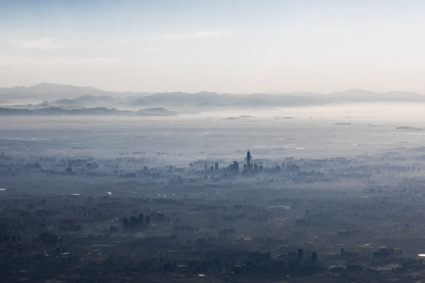Our August 2020 pick for the PBS NewsHour-New York Times book club is Daniel Nieh's "Beijing Payback." Become a member of the Now Read This book club by joining our Facebook group, or by signing up to our newsletter. Learn more about the book club here.
Below are questions to help guide your discussions as you read the book over the next month. You can also submit your own questions for Daniel Nieh on our Google form. Nieh will answer reader questions about "Beijing Payback" on the PBS NewsHour at the end of the month.
WARNING: Spoiler alert on questions further down
- From the start of the story, Victor Li discovers his parents weren't the people he thought they were while he was growing up. Have you ever learned something about your family as an adult that changed your understanding?
- Victor is torn between two worlds, that of his comfortable life in California and that of his father's in China. Does he ultimately favor one over the other? Why?
- How does growing up in Communist China affect the choices Victor's father, Vincent Li, makes for his family?
- Victor writes that both he and Wei Songqin are intertwined "with the fate of men and of nations." What does he mean by this?
- How are Victor's ideas about ethics and morality challenged when he arrives in Beijing?
- After Victor discovers what's behind the "Ice" operation, he thinks about "the circumstances that make it possible and profitable." Are there any connections you make between the U.S.' current economic relationship with China?
- "Sometimes the hand that leads you is also that hand that bleeds you," Vincent Li tells his son. Do you think he felt remorse before he died?
- Why do you think Victor decides to let Sun Jianshui live?
- Did you have any sympathy for Sun despite the revelation of what he did to Victor's family? Why or why not?
- Were there certain ideas or expectations about gender that came across in the character development? Were there things about this you would have changed?
- How did the pacing of the book compare to other thrillers you have read? What kept you motivated to read until the end?
- What effect does the author's use of Chinese phrases and language have throughout the book?
- What insight does Nieh offer about the immigrant experience? What about privilege and identity?
- Nieh seems to set up the ending of the book for a sequel. How would you continue the story?
Support Canvas
Sustain our coverage of culture, arts and literature.

